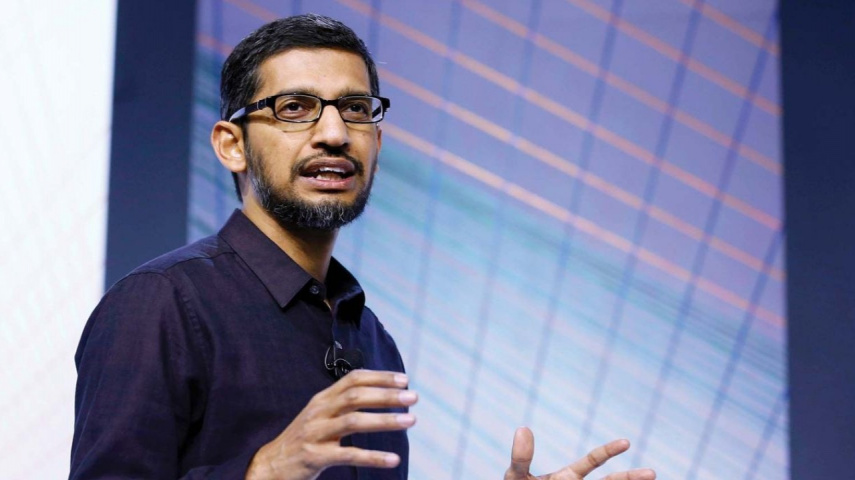Google CEO Sundar Pichai Believes ‘Smartphones and Glasses’ Will be Next Step In AI Innovation
Learn about Google's AI journey as CEO Sundar Pichai shares insights on challenges and the future of AI in search. Pichai also shares his thoughts on global collaboration in this field.

-
Pichai emphasizes Google's commitment to retraining AI models
-
Google sees smartphones and wearable tech as central to AI innovation
Since 2016, Sundar Pichai, the CEO of Google’s parent company Alphabet has been speaking publicly about its deep dive into artificial intelligence (AI). In a recent interview with Bloomberg, he admitted to faults and triumphs during a recent interview.
AI and search integrity concerns
Pichai has admitted to recent controversies like the protests against AI-created artworks by Google’s Gemini saying “We didn’t get it right.” Instead, he emphasized their discipline of training new models from scratch in order to improve product quality. Nevertheless, they have made progress towards differentiating real from synthetic content within search results which is significant for maintaining Search’s credibility.
Frontiers and risks in AI
The CEO alluded to the importance of furthering AI’s thinking capabilities and knowledge-building amid growing fears about the generation of data by AI. Moreover, he expressed that refining theories of AI must be done continuously for advancement and boosting wisdom.
Pichai goes on saying, "Yes. I think that, you know, through it all, are you creating new knowledge? Are these models developing reasoning capabilities, right? Are you making progress in the intelligence of these models? I think those are the frontiers we need to prove."

Looking ahead; Google’s role and future of AI
Regarding future AI-powered hardware, Pichai believes mobile phones as well as wearable technology like glasses are key areas that will drive innovation. He suggested that this was the key front where innovation for them should be directed.
He says, "I think with AI, you get a chance to rethink that experience over the next few years. I still see the center of where the AI innovation will happen in smartphones, followed by glasses, right? That's how I see it."
According to him, there must be global cooperation with China in terms of making policies around AI aimed at ensuring safety first. Similarly, he argued that if we could establish frameworks around it like those used for other critical technologies such as nuclear then we could effectively address problems related to it.
Artificial General Intelligence (AGI) and Google's role
When asked about the real meaning of AI Pichai says, "It's not a well-defined phrase, it means different things to different people. But I think if you define AGI as AI becoming capable across a wide variety of economic activities and being able to do it well, I think that's one way to look at it."
While defining AGI differently, Pichai said that his organization remained committed to making progress responsibly toward AGI . He did not provide a specific timeline but explained how important these initial steps were towards AGI development.
This can also be seen through Pichai's observations regarding this field where several opportunities exist side by side with challenges. Aimed at responsible innovation while working collaboratively with others, Google intends to explore the limits of AI and cope with the complicated context where technology and society merge.
ALSO READ: Apple developing AI server chips beyond iPhones, iPads, and Macs; Deets here





 JOIN OUR WHATSAPP CHANNEL
JOIN OUR WHATSAPP CHANNEL



































































































